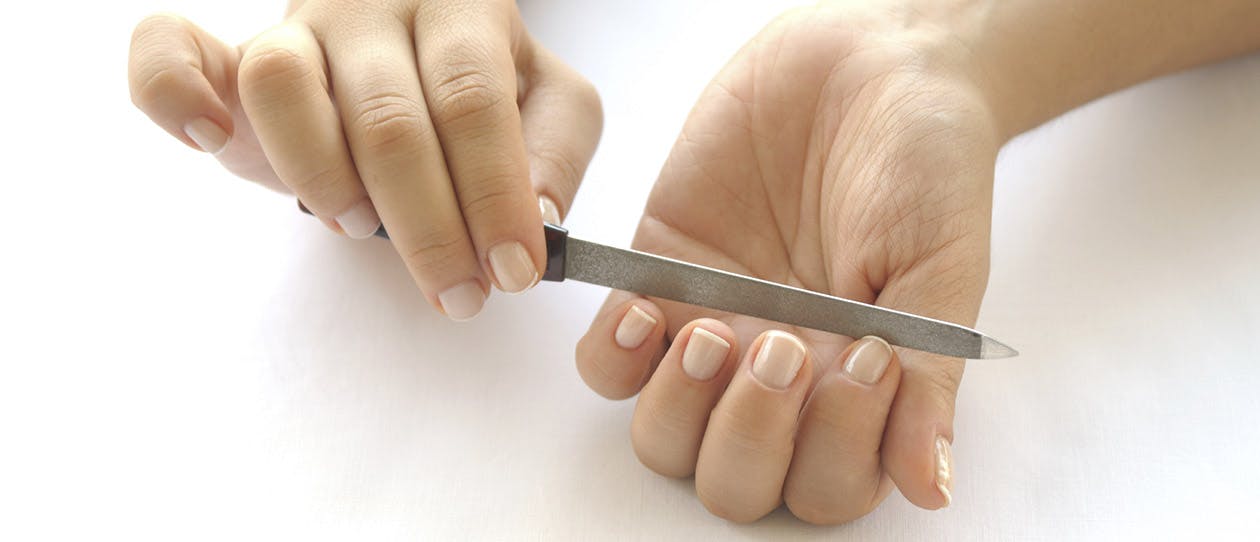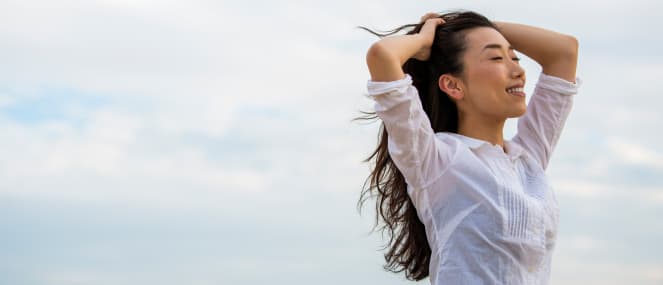
- Health hub/
- Guide To Protecting Your Nails, Hair And Skin/
- Natural nail care


Nails are predominately made up of the protein keratin. Nails tend to grow at a consistent pace throughout life and may be affected by blood supply, medication, illness or infection. Unlike hair, nail growth is not influenced by hormones.
Although the main characteristics of nails are genetically predetermined, there are some situations where diseases and nutrition may affect the growth and therefore appearance of nails.
Nail Problems
Flaking or splitting
Nails may peel or break easily or be brittle. There may be many reasons for this, including:
- Frequent washing or wetting of hands, especially with detergents
- Applying and removing nail polish
- Excessive overuse of a nail or several nails
- Deficiencies including silica, biotin or essential fatty acids
Ridged nails
Nails that are ridged may occur as part of the natural aging process, but they can be due to other causes. Ridged nails generally present with vertical or sometimes horizontal lines along the nail plate. Reasons for ridging include:
- Ageing
- Deficiencies of minerals such as iron
- Trauma to the growing nail
- Fever or illness
- Other conditions such as eczema or arthritis
Discolouration of the nail
Nails may appear stained all over or display white spots or flecks. Reasons include:
- Nail polish, or hair dyes
- Medications, such as anti-malarial, or chemotherapy drugs
- Cigarette smoke, which generally affects several nails
- Lack of zinc, which is a precursor to keratin production, can leave white spots on nails
- In rare cases serious illness can cause yellowing and thickening of the nails
Even though our nails seem to take care of themselves, nature can always use a helping hand. My top picks for nail nutrients are:
Silica
The mineral silica is thought to be involved in the protein synthesis of connective tissues and therefore strength of nails. It is thought that silica may improve the structure of brittle, fragile nails, including nails that are flaking and peeling. Look out for a silica supplement, or the herb horsetail. Food sources of silica include oats, whole wheat and barley.
Iron
Dietary iron deficiency affects a number of women and results in tiredness but it can also have an impact on nail health. Not enough iron can lead to nails that are misshapen (dish-like), ridged or brittle.
If you suspect iron deficiency or anaemia, seek advice from your healthcare professional before commencing iron supplementation. The recommended daily intake (RDI) of iron for premenopausal women is 18 mg/day, and supplements with doses higher than this may be taken if anaemia is detected.
Foods rich in iron include red meat, wheat germ and wheat bran, chicken and green leafy vegetables such as spinach.
Biotin
Biotin is a B vitamin otherwise known as vitamin H. Biotin, unlike other B vitamins, is mostly produced by bacteria in the intestinal tract, and it is known to be involved in important processes that help make healthy nails. Amounts over 2.5 mg/day have been shown to help thin and brittle nails.
Gamma Linolenic Acid (GLA)
GLA is an omega-6 fatty acid found in borage and evening primrose oil. This fatty acid has been reported to help with nail brittleness. Take one gram of evening primrose oil three times a day.
References available on request




